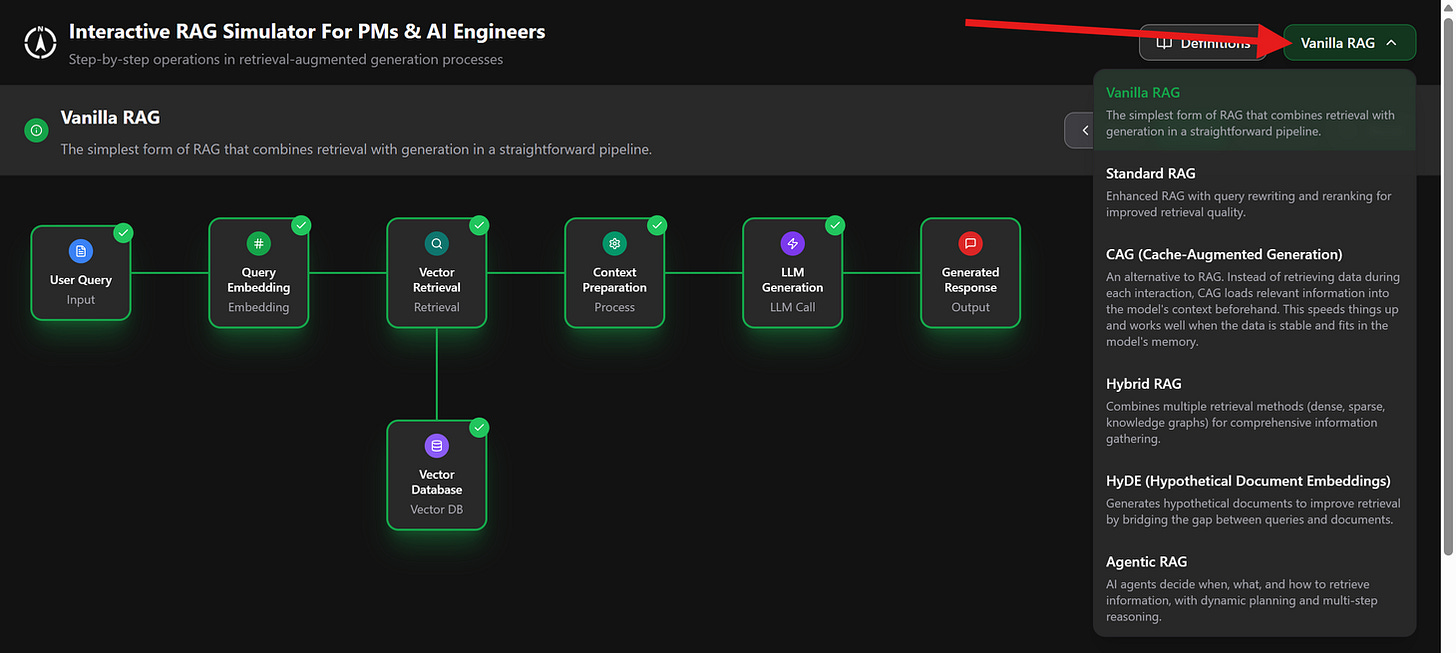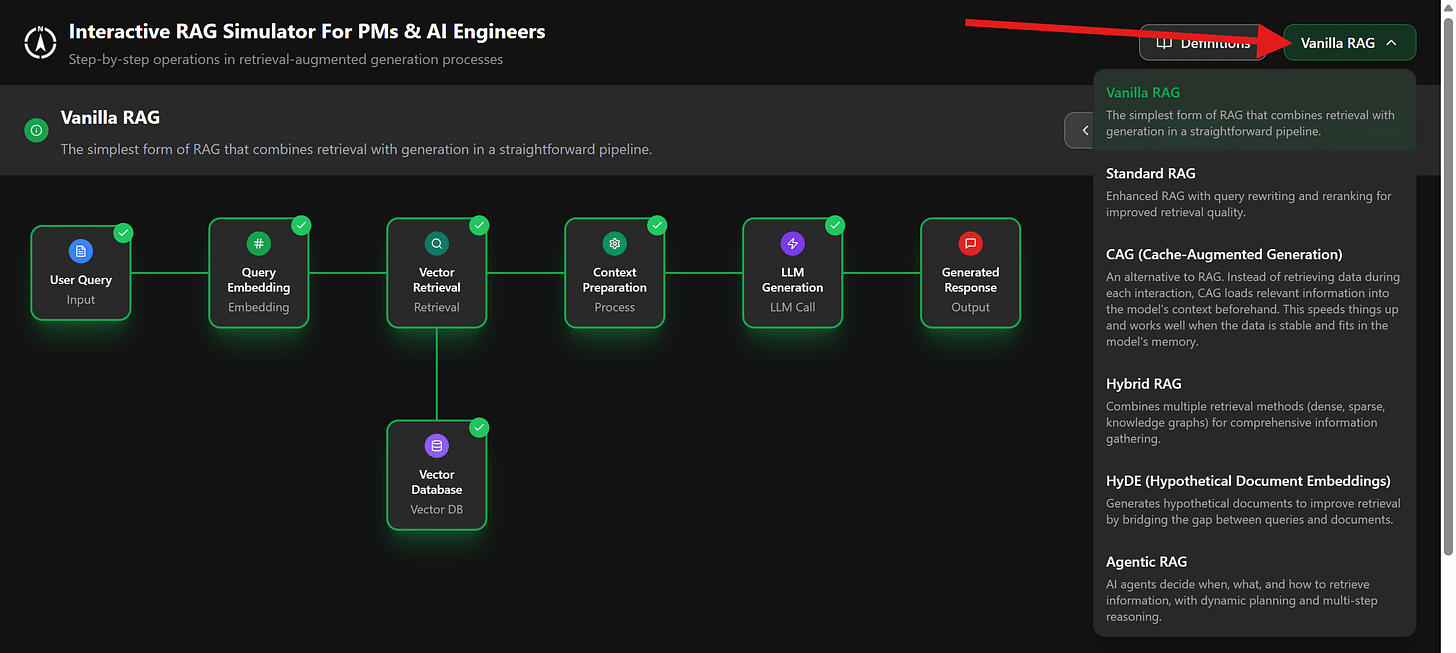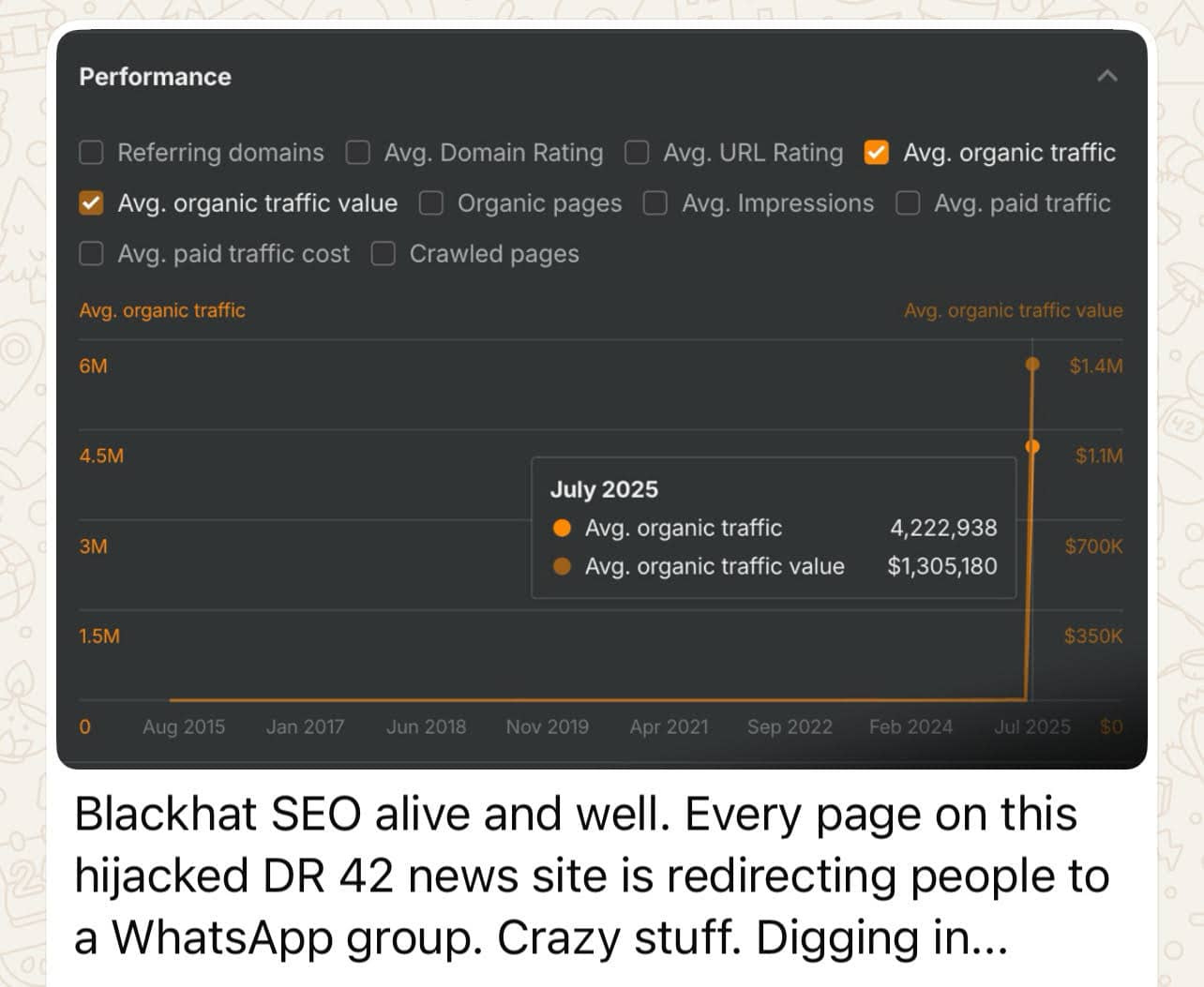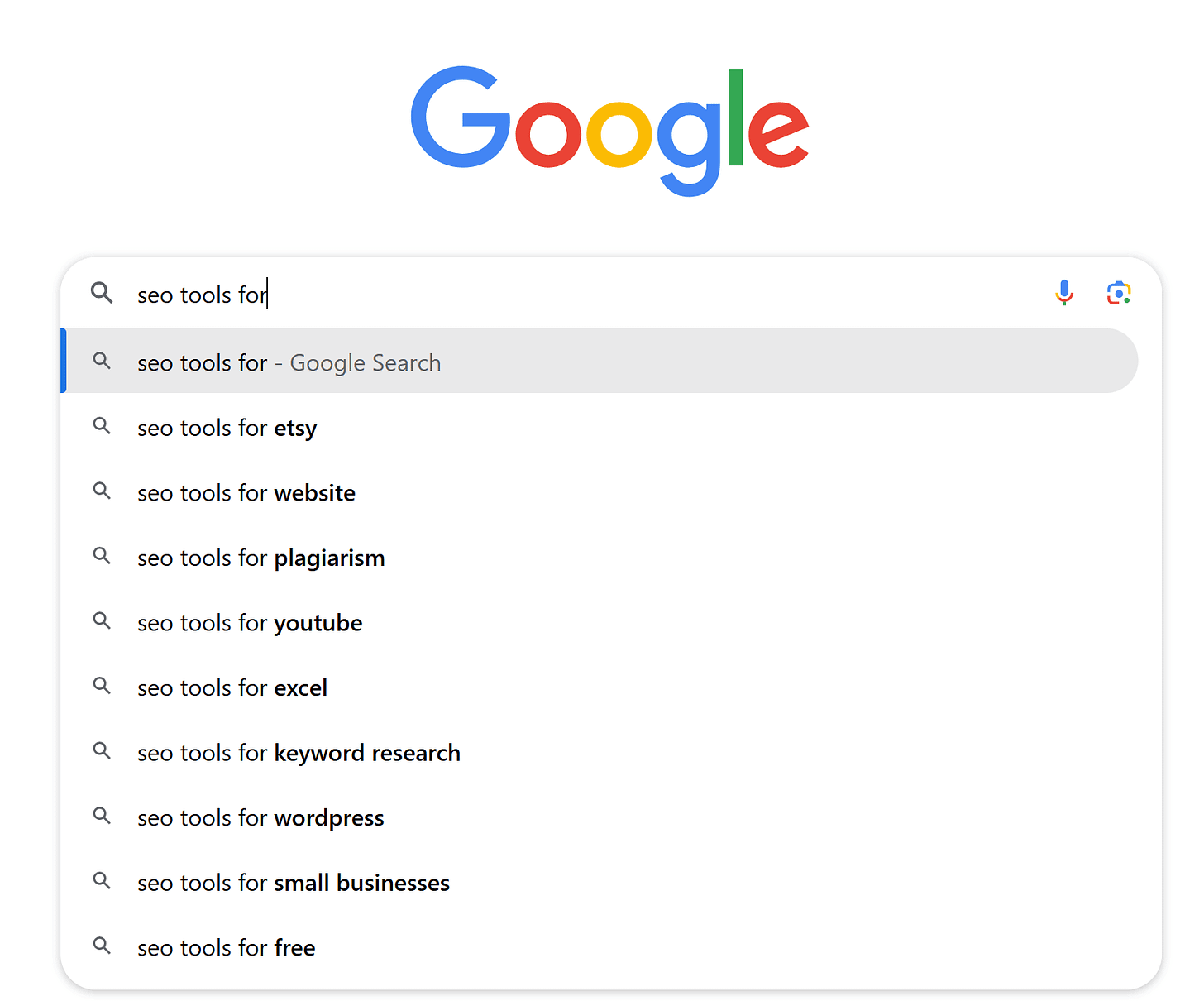SEO Like It’s 2014
Before we talk SEO I have some good news 🗞️:
Next week’s newsletter will go out Wednesday instead of Tuesday to align with a sponsor’s product launch 🚀 Exciting stuff...stay tuned...👀👀👀
If you're interested in sponsoring this space, reach out.... now, let’s dive into today’s SEO insights.
I started SEO in 2014, so that’s the earliest memory I have of SEO and these days, things seem to becoming to a full circle, except they’re not!
In this edition, I'm gonna chat with you about some tactics and concepts old and new and then wrap it all up by telling you the most redundant advice you've been hearing forever, create helpful content and don't try to take shortcuts 😄 but I will make sure you leave with new knowledge as well, don't worry!
TL;DR
I'm sharing a cool tool to visualize how RAG systems work, first section below.
Black hat still works. Using expired domains and hacking website are on the rise 😏
Programmatic SEO is a great tactic, and it's not about automating page creation, rather a specific type of pages. Abuse it, lose it 😄
Koray was able to outrank highly authoritative website, some of the tactics in this playbook include: Keep answers close to the question, use short sentences, and concise answers. More below, just scroll 😄
Links matter for SEO but not for LLMs. Turns out there's a difference between SEO and GEO.
Don't push back on things just because they're unfamiliar or new. A lot of SEOs are doing that right now as they have always done.
Tool to Try: RAG Visualizer
I've met with so many talented SEOs and I'm very impressed with their knowledge, but I also know it's hard to keep track of everything that's new or changing in SEO. This is why I think this tool is super cool (that was shared by Wil Reynolds) as it explains how different RAG systems work. You can select a system from the drop down menu, and give it a test drive. Try it here: https://rag.productcompass.pm/
Black hat still works
Google is the most advanced platform on the internet today in terms of handling spam, yet spammy tactics still work.
Steve Toth posted this on his WhatsApp channel. Apparently there's a serge in this tactic these days given how hard it is to do white hat SEO.
But that's not the only example! James Brockbank found that a lot of businesses are "being recommended on ChatGPT in some of the most competitive sectors out there by manipulating the results in two ways; by publishing listicles on hacked sites and rebuilt expired domains."
Creating a listicle parasite SEO blog and publishing it on third party websites have been proven to influence the visibility and output of ChatGPT. But bad players are unfortunately taking this to the next level, they're hacking websites just to create a listicle page!!!
Folks we have a problem. LLMs are not prepared to the amount of spam and manipulation that is coming/came already their way.
Handle with care
Programmatic SEO (pSEO) is often associated with mass creation of pages but it doesn't have to be like that. Don't think about pSEO as a numbers game, but rather as type of pages.
For example, my favorite tip:
I always look for keywords with modifiers like:
[something] for [something]
So if your business is offering an [SEO tool] for example, you may be interested in keywords like:
seo tools for agencies
seo tools for freelancers
etc....
And you can work with a good content writer to manually create those pages and making sure they're high quality. No automations needed!
Now to the flip side, I've seen others warning against programmatic SEO. You should only be concerned if you're creating pages at scale using AI such that those pages provide no unique value.... they're just AI slop. So keep that in mind.
Semantic SEO
Koray was able to outrank highly authoritative sites by using this playbook! Shared in this twitter thread. I asked ChatGPT to help me explain the top 10 tips (out of 35 total), and reviewed it's output. This can serve as a checklist to share with your content writers!
1. Use factual sentence structures.
Avoid vague phrases like “X is known for Y.” Instead, say what it does.
✅ Example: “Yoast is known for SEO tools” → “Yoast provides SEO tools.”
2. Support claims with credible research.
Use studies or university research when possible.
✅ Example: “According to Stanford University (2022), structured data improves click-through rates by 30%.”
3. Be concise.
Cut fluff and get to the point.
✅ Example: “X is the most common Y” → “X is Y (40%).”
4. Include original branded images with metadata.
Create visuals with unique layouts and embed copyright and EXIF data.
✅ Example: Use screenshots of your tool with your logo and metadata for Google Images indexing.
5. Use a Q&A format for headings.
Frame subheadings as questions to align with search intent.
✅ Example: “What does canonical mean in SEO?”
6. Keep answers close to the question.
Don’t separate the question and answer with filler.
✅ Bad: "Let's explore..." → ❌
✅ Good: Start answering immediately after the question.
7. Use shorter sentences.
Helps readability and crawlability.
✅ Example: “SEO improves rankings. Rankings increase visibility.”
8. Remove meaningless words.
If a word doesn’t change the meaning, delete it.
✅ Example: “Basically, SEO helps websites” → “SEO helps websites.”
9. Use unique phrasing and n-grams.
Avoid copying phrases from top-ranking pages. Show originality.
✅ Tip: Rewrite with your own tone and style to stand out.
10. Add structured data (FAQ + Article).
Use schema markup to help search engines extract content better.
✅ Example: Add FAQPage and Article schema to improve visibility in SERPs.
Links still matter
I don't see external links to your website influencing ChatGPT output and this is one major difference between SEO and "GEO" if you love the debate. Brand mentions (with or without a link) matter more for LLMs, while they also matter for Google, links matter equally or even more.
The SEO community seems to be going through a lot of uncertainty and confusion right now. There are so many new buzzwords showing up, and I notice people pushing back against them which is a natural response, since humans are naturally skeptical of anything new (neophobia).
I don't think SEO and GEO are the same. Search engines like google have very different systems (most are hardcoded by developers) than how LLMs systems work. How can optimizing for these platforms be the same? Yes there's an overlap, and yes we don't know enough yet, but this does not mean they're the same.
And That’s a Wrap (Almost 😄)
Oh boy, how can I wrap this blog? SEO is moving at the speed of a rollercoaster. Create a list of concepts and tactics you want to learn and go through them one day at a time. That's my best advice.
My second best advice is create helpful content 😀 hehehehe...
That's that for today folks! And see you next newsletter.
*Disclaimer: This blog is fully written by ME! I try to switch between using LLMs for writing and not using them to compare performance, and keep my writing and thinking skills good 😄




